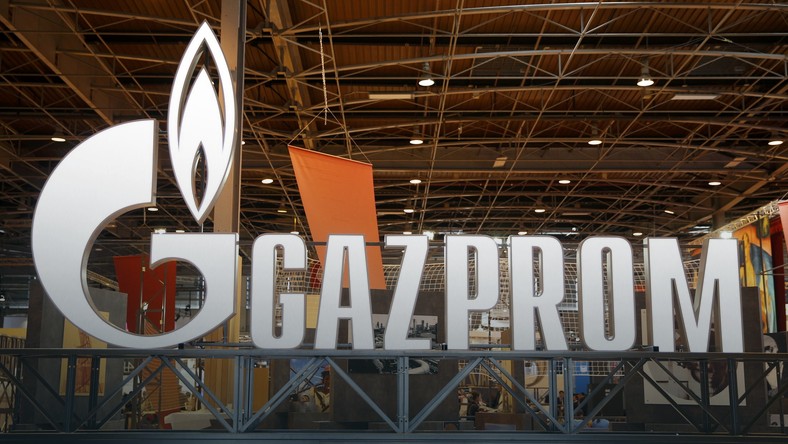
Photo: Benoit Tessier / Reuters
Logo Gazprom
Gazprom informed about that by giving the understand that actually comes to placing two new strands bus Nord Stream (North European Gas Pipeline), which since 2011 natural gas from Russia under the Baltic Sea directly to Germany flows. The Russian company said that the parties intend to use the experience and plans of the company Nord Stream, including those developed by it in 2012. The feasibility study of the project.
Gazprom reported that a letter of intent was signed during started on Thursday 19th International Economic Forum in St. Petersburg. Signatures under the document were submitted by: the President of Gazprom, Alexei Miller, board member of E.ON Klaus Schafer, CEO of Royal Dutch Shell Ben van Beurden and OMV board member Manfred Leitner.
Gazprom announced that the parties will join in the near future to create a company that will implement the project. The new gas pipeline is to have the same power transmission, which has Nord Stream – 55 billion cubic meters of gas per year.
– Since the launch of Nord Stream, Gazprom has studied the possibility of increasing the capacity of this pipeline. Today, together with our partners we proceed to implement this project – said Miller, quoted by the press service of the Russian company.
The head of Gazprom added that “building an additional transport infrastructure on the shortest route connecting gas fields in northern Russia and the European markets will be conducive to increasing the safety and reliability of supply on the basis of new contracts.”
Schafer for his part he noted that “in the framework of this project, E.ON not only continues, but even extends the successful partnership with Gazprom.” – Implementation of the Nord Stream project has shown that pressing the gas through the Baltic Sea is a reliable solution – pointed.
Z van Beurden turn, stressed that “natural gas will continue to play an important role in the energy balance of Europe, which is why such projects are important to meet the demand for energy, especially in view of declining oil production in Europe itself.”
On the other hand Leitner stated that “this is an important step towards strengthening the security of gas supplies to Central Europe” and that “this will strengthen the role of Baumgartenu in Austria as a gas hub. “
The first step in the development of Nord Stream, the Russian company has made in August 2012 year. Then it controlled by Gazprom, Nord Stream, the operator of the Nord Stream pipeline, called on the governments of Finland and Estonia for permission to carry out seabed surveys in their exclusive economic zones in the Gulf of Finland.
Earlier Gazprom, which the company Nord Stream has 51 percent. shares, announced that it intends to double the capacity of the pipeline by stacking two other threads. One of them would cause the tube to the UK.
Nord Stream consists so far of the two strands with a capacity of 27.5 billion cubic meters. of gas per year (total – 55 billion cubic meters.). The first was put into operation in November 2011. The second was launched in October 2012.
Sea bus section, numbering 1224 km, starts from the Portovaya compressor station near Vyborg, and ends in the vicinity of Greifswald. It runs through the territorial waters or exclusive economic zones of Russia, Finland, Sweden, Denmark and Germany.
In addition to Gazprom Nord Stream shareholders are German E.ON-Ruhrgas and BASF-Wintershall (they have 15.5 percent.) and Dutch company Gasunie and French GDF (by 9 per cent.).
Miller announced in October 2012 that the letter of intent regarding the possible expansion of Nord Stream can be signed within a few months. However, he approached the German side to these plans coldly. Chancellor Angela Merkel stressed that Germany was not interested. German experts have argued that the transmission capacity of the first pipeline is used only at 30-40 per cent. This state of affairs explained to Gazprom’s inflexible pricing policy.
(eg)
No comments:
Post a Comment